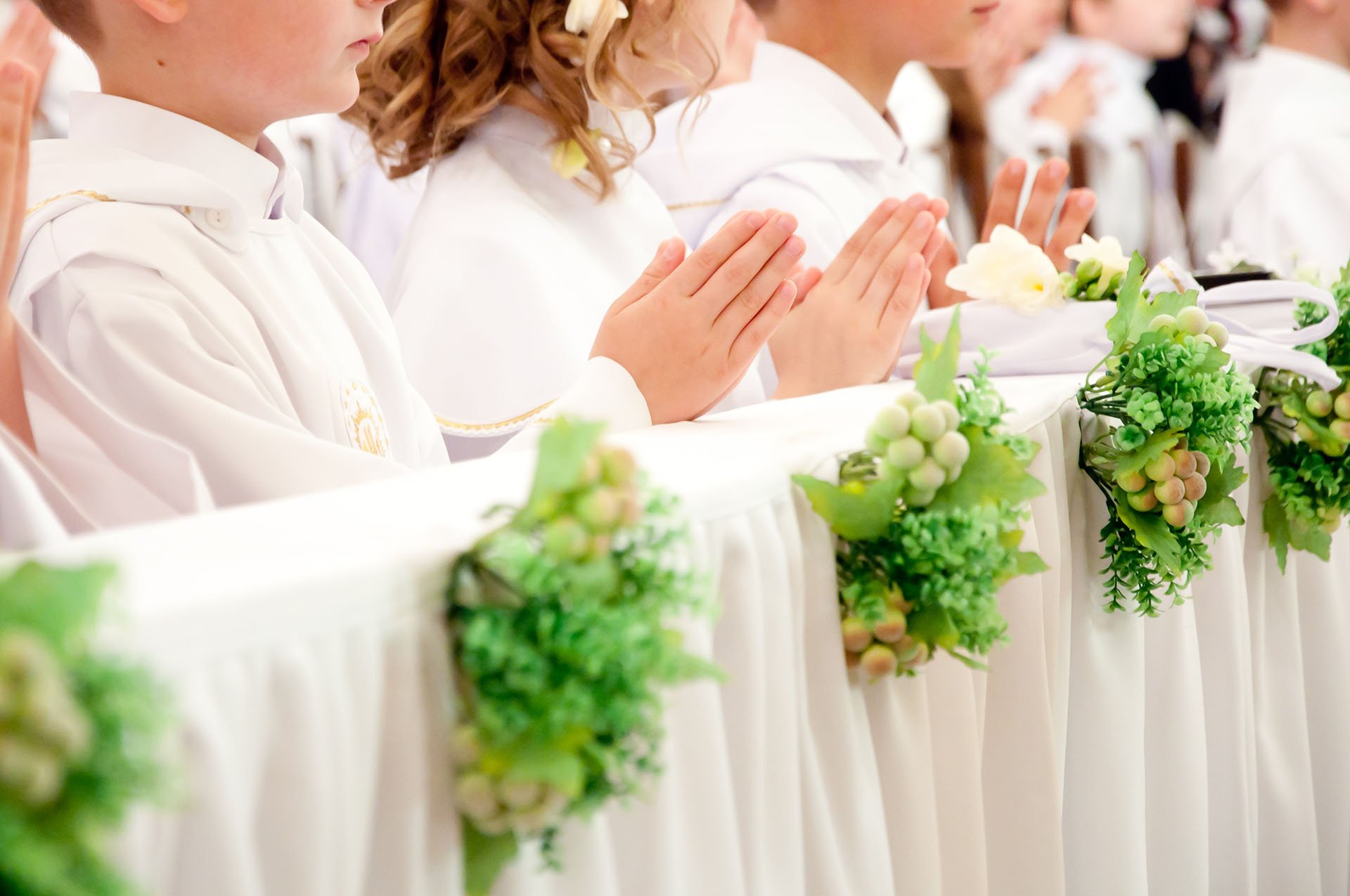Definitive Guide to First Communion Gifts.
First Communion is a significant religious ceremony within the Catholic Church that marks a child's first reception of the Eucharist. It is typically celebrated when a child is around seven to eight years old, after they have completed the necessary catechesis and preparation. The Eucharist is a central sacrament in the Catholic Church, and receiving it for the first time is a significant milestone in a child's spiritual development.
During the First Communion ceremony, the child dresses in special clothes, often white, to symbolize purity and innocence. The child will then receive the Eucharist from a priest, who will administer the bread and wine, which Catholics believe are transformed into the body and blood of Christ during the Mass. Hymns, prayers, and readings from the Bible usually accompany the ceremony. It is a joyful occasion for the child and their family, as it marks their entry into full participation in the Catholic Church.
First Communion gifting is a tradition in which friends and family members of a child receiving their First Communion give them a gift to commemorate the occasion. These gifts can vary widely, depending on cultural and religious traditions, personal preferences, and the relationship between the giver and the child.
Sometimes, the gifts may be religious, such as a Bible, rosary beads, or a crucifix. Other presents, such as jewelry, a special outfit, or a savings bond, maybe more personal or practical. It is also common for family members to give money or gift cards to help the child begin saving for their future.
Whatever the gift, it is intended to be a meaningful and thoughtful gesture that shows the child that they are loved and supported by their family and community. In some cultures, it is traditional for the child to receive multiple gifts, each symbolizing a different aspect of their spiritual and personal growth. But ultimately, the most important present is the love and support of those around the child as they continue to grow and develop their faith.
Using a universal wishlist for First Communion gifting can be a convenient and practical way to ensure that the child receives meaningful and valuable gifts. A universal wishlist allows the child and their family to create a list of items they would like to receive as gifts, which can be shared with friends and family members, helping prevent duplicate gifts and ensuring that the child receives appropriate items for their age and interests.
A universal wishlist can also make it easier for friends and family members who may not be familiar with the child's preferences or religious traditions to choose an appropriate gift. By having a pre-made list of items, they can choose something they know the child will appreciate that aligns with the family's values and beliefs.
Furthermore, a universal wishlist can be especially helpful for families who may be geographically dispersed or have a large circle of family and friends. It can be challenging to communicate gift preferences and ideas to everyone, and a universal wishlist simplifies the process by providing a centralized location for everyone to access.
Overall, using a universal wishlist for First Communion gifting can be a practical and convenient way to ensure that the child receives thoughtful and appropriate gifts while making the gifting process easier for friends and family members.
Popular First Communion Gifts
A variety of common gifts are often given for First Communion, ranging from religious and spiritual items to more practical or sentimental presents. Here are some examples:
Religious Items: Bibles, rosaries, crosses, prayer books, religious medals, and statues of saints are popular gifts for First Communion.
Jewelry: Many families give a piece of jewelry to commemorate the occasion, such as a bracelet or necklace with a religious charm or pendant.
Clothing: It is traditional for the child to wear special clothing on the day of their First Communion, so a gift of a special outfit or dress can be meaningful.
Savings bonds: Money or savings bonds can be a practical gift that helps the child save for their future.
Books: Inspirational books or books on Catholic doctrine or history can be a thoughtful and educational gift for a child who is beginning to explore their faith.
Personalized Gifts: Personalized items such as photo frames, keepsake boxes, or engraved crosses can be cherished mementos of the occasion.
Technology: For older children, technology gifts such as e-readers or tablets can provide a way to access religious materials and resources digitally.
The best First Communion gifts are thoughtful, meaningful, and appropriate for the child's age and interests.
History of First Communion
The history of First Communion dates back to the Last Supper when Jesus shared bread and wine with his disciples and instructed them to "do this in memory of me." This event is considered the origin of the Catholic sacrament of the Eucharist, in which the bread and wine are believed to be transformed into the body and blood of Christ during the Mass.
The practice of First Communion as a specific ceremony for children developed in the Middle Ages, as the church sought to emphasize the importance of the Eucharist and encourage greater participation among the laity. By the 13th century, it had become customary for children to receive their first communion around the age of seven after completing a period of catechesis and preparation. Over time, First Communion came to be seen as a significant milestone in a child's spiritual development, and it remains an important sacrament in the Catholic Church.

